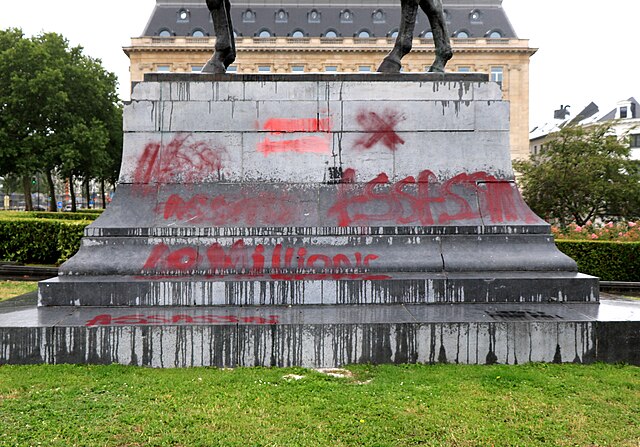Une technique de gouvernementalité (post)coloniale?
La commission Congo en Belgique (2020-2022) dans une perspective historique
DOI :
https://doi.org/10.51185/journals/rhca.2023.stc04Mots-clés :
Passé colonial, Congo, Burundi, Rwanda, Belgique, justice transitionnelle, histoire publique, réparationsRésumé
Cette contribution met en perspective la Commission parlementaire belge sur son passé colonial (2020-2022) – et pour laquelle les autrices ont participé en tant qu’« expertes » –, avec d’une part la Commission d’enquête belge de 1904-1905 sur les atrocités du « régime du caoutchouc » de Léopold II au Congo et d’autre part la Commission d’enquête belge de 2000-2002 qui a examiné le rôle de l’État belge dans l’assassinat de Patrice Lumumba. Après une brève présentation de la récente commission, nous réfléchissons tout d’abord au rôle des « expert.es » de la commission, et plus particulièrement des historien.nes. Ensuite, nous cherchons à savoir dans quelle mesure ces commissions fonctionnent comme des technologies de gouvernementalité qui maintiennent, plutôt qu’elles ne critiquent, les équilibres de pouvoir existants.
Traduction : Romain Tiquet.
Références
Bevernage Berber (2011), « History by Parliamentary Vote : Science, Ethics and Politics in the Lumumba Commission », History Compass, 9(4), pp. 300-311.
Bevernage Berber (2012), « Geschiedenis in overheidsopdracht : Wetenschap, ethiek en politiek in de Belgische Lumumba-commissie», Tijdschrift voor Geschiedenis, 125(1), pp. 80-95.
Bevernage Berber (2018), « The Making of the Congo Question : Truth-Telling, Denial and “Colonial Science” in King Leopold’s Commission of Inquiry on the Rubber Atrocities in the Congo Free State (1904-1905) », Rethinking History : The Journal of Theory and Practice, 22(2), pp. 203-238.
Brophy Alfred (2006), Reparations : Pro and Con, Oxford, Oxford University Press.
Burroughs Robert (2017), African Testimony in the Movement for Congo Reform : The Burden of Proof, Londres, Routledge.
Ceuppens Bambi (2007), « Lumumba. De complotten ? De moord. Onderzoeksrapport of historische studie ? », BMGN-Low Countries Historical Review, 122(3), pp. 385-400.
De Witte Ludo (1999), De moord op Lumumba, Leuven, Van Halewyck.
Forrester Katrina (2019), « Reparations, History and the Origins of Global Justice », in D. Bell (dir.),
Empire, Race and Global Justice, Cambridge, Cambridge University Press, pp. 22-51.
Gerard Emmanuel (2007), « Het Lumumba Onderzoek », BMGN-Low Countries Historical Review, 122(3), pp. 401-410.
Klep Christ (2007), « Een problematische erfenis : België en de moord op Lumumba », BMGN-Low Countries Historical Review, 122(3), pp. 374-384.
Langhendries Maarten (2019), « Le missionnaire : Figure de la réconciliation avec le passé colonial en Flandre (2007-2012) », Revue belge de Philologie et d’Histoire, 97(3), pp. 751-771.
Mathys Gillian et Van Beurden Sarah (2023), « History by Commission: The Belgian Colonial Past in the Public Eye », The Journal of African History, pp. 1-10.
Rovetta Ornella (2021), « Écrire l’histoire en commission : la justice pénale internationale à la lumière des archives françaises », Revue d’histoire contemporaine de l’Afrique. En ligne, consulté le 13 novembre 2023, URL : https://oap.unige.ch/journals/rhca/article/view/rwandarovetta/442.
Poncelet Marc (2008), L’invention des sciences coloniales belges, Paris, Karthala.
Quijano Aníbal (2007), « Coloniality and Modernity/Rationality », Cultural studies, 21(2-3), pp. 168-78.
Shapin Steven (2010), Never Pure : Historical Studies of Science as if It Was Produced by People with Bodies,
Situated in Time, Space, Culture, and Society, and Struggling for Credibility and Authority, Baltimore, MD, Johns Hopkins University Press.
Spivak Gayatri Chakravorty (1993), « Can the Subaltern Speak ? », in P. Williams et L. Christman (dir.), Colonial Discourse and Post-Colonial Theory : A Reader, Abingdon, Routledge, pp. 66-111.
Stoler Ann Laura (2010), Along the Archival Grain : Epistemic Anxieties and Colonial Common Sense, Princeton, N.J., Princeton University Press.
Thompson Janna (2015), « Reparative Claims and Theories of Justice », in K. Neumann et J. Thompson (dir.), Historical Justice and Memory, Madison, University of Wisconsin Press, pp. 45-62.
Torpey John (dir.) (2003), Politics and the Past : On Repairing Historical Injustices, New York, Rowan and Littlefield.
Tshonda Jean Omasombo (2022), « Commission Lumumba : Difficile regard sur un passé », Forum Association Belge des Africanistes, 22, pp. 221-261.
Van de Mieroop Kenan (2015), « Historical Presents : A Study of the Debates Around Reparations for Slavery in the United States and France, the post racial era and the Age of Commemoration », thèse de doctorat, Université de Gand.
Verbeeck Georgi (2007), « De Lumumba-commissie : Geschiedschrijving en collectieve herinnering », BMGN-Low Countries Historical Review, 122(3), pp. 357-373.
Willame Jean-Claude (2001), « Commission Lumumba : Pièges et parasites », La Revue Nouvelle, 11, pp. 30-35.

Téléchargements
Publiée
Comment citer
Numéro
Rubrique
Catégories
Licence
Certains droits réservés 2023 Sarah Van Beurden, Gillian Mathys; Romain Tiquet

Ce travail est disponible sous licence Creative Commons Attribution - Pas d’Utilisation Commerciale 4.0 International.




